11 Breeds of Dogs With UNDERBITES (+ Photos)
Underbites may not be the first thing you think of when it comes to dogs, however, there are several breeds sporting this toothy grin. Find out which dogs have underbites and why dogs have underbites in the first place.
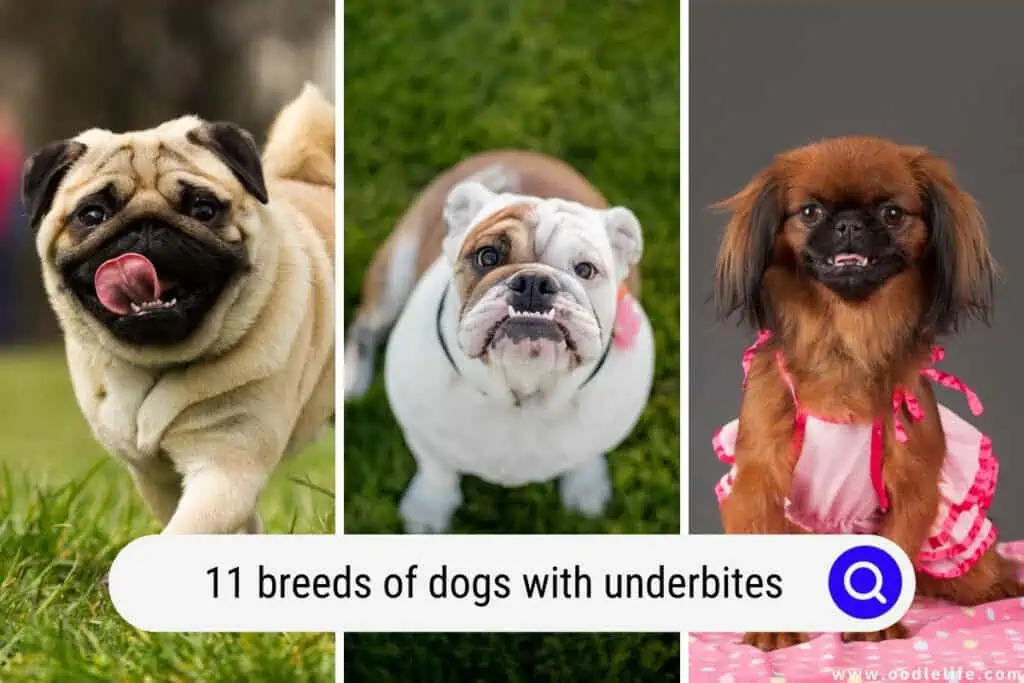
What Is an Underbite in a Dog?
Like humans, an underbite in a dog refers to the lower teeth projecting beyond the upper teeth. Veterinarians will refer to this issue as malocclusion. While an underbite can happen in various breeds, it’s commonly seen in brachycephalic breeds.
Brachycephalic refers to dog breeds that appear to have a squished face or a “short skull.”
Besides short-skull breeds, underbites are also common in small dogs. Dogs that belong to the toy breed classification also typically suffer from other dental issues such as overcrowding or protruding teeth.
Now that we understand a bit more about underbites in dogs let’s explore 11 breeds of dogs that are prone to underbites.
Shih Tzu
Shih Tzus are a beloved companion animal commonly found in homes worldwide. These friendly little creatures have a long history of being lap dogs for noble women in China.
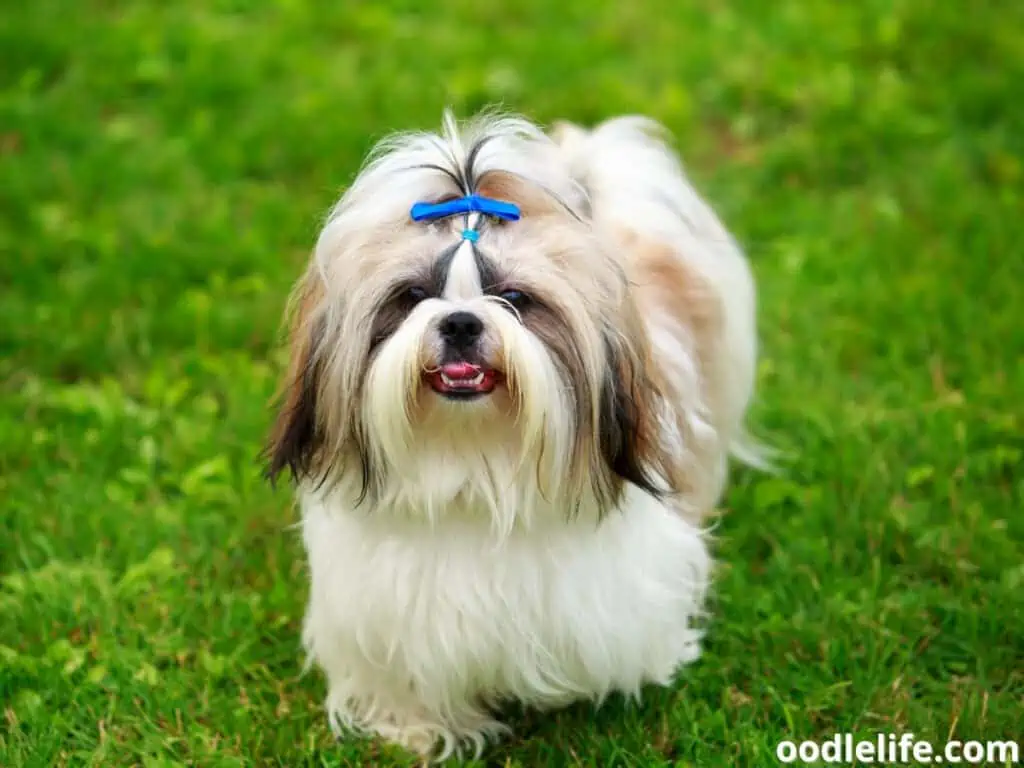
While these small dogs make excellent family dogs well suited to most environments, it is not uncommon for a Shih Tzu to display a severe underbite.
A Shih Tzu’s charming and friendly personality just might win you over enough to pay for those veterinary dental bills!
English Bulldog
Perhaps the dog most commonly associated with an underbite is the English Bulldog. This breed’s predisposal for malocclusion completes the Bulldog’s look. It’s fair to assume if you are purchasing a bulldog, you will have to deal with an underbite.
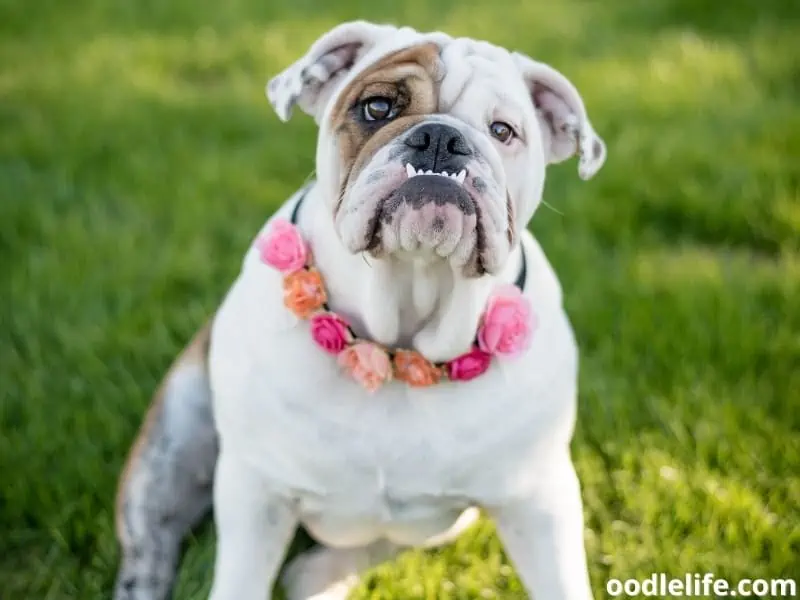
However, some Bulldogs have a more pronounced underbite than others.
This is why it’s important to only purchase your English Bulldog from a responsible, ethical, and reputable breeder. A Bulldog with an excessive underbite will not only require expensive dental visits but may experience discomfort while eating.
Pekingese
These lap dogs were bred as companions to royal figures in the Chinese city of Peking. Today, these toy-sized dogs are loved by many. They are regarded as friendly, intelligent, and full of personality.
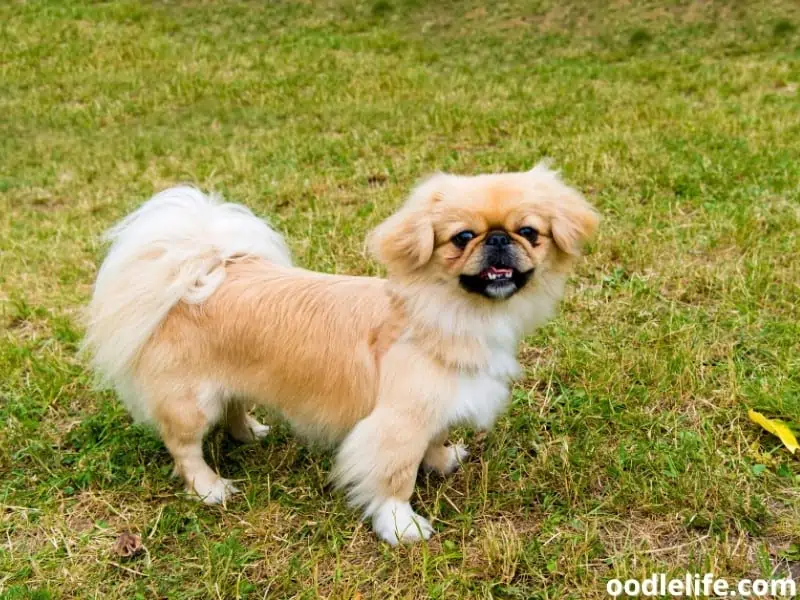
Pekingese dogs are distinguished by their “lion mane” coat. It’s also not uncommon for these small dogs to present an underbite. Like other brachycephalic breeds, they are prone to having underbites.
Even with some teeth protruding from their lower jaw, it’s impossible not to love these lively little creatures.
Pug
It’s not hard to spot a Pug! Their black masked, squished face and fawn shorthair coat set them apart from other dogs. There’s nothing like those little curled tails wagging to greet you!
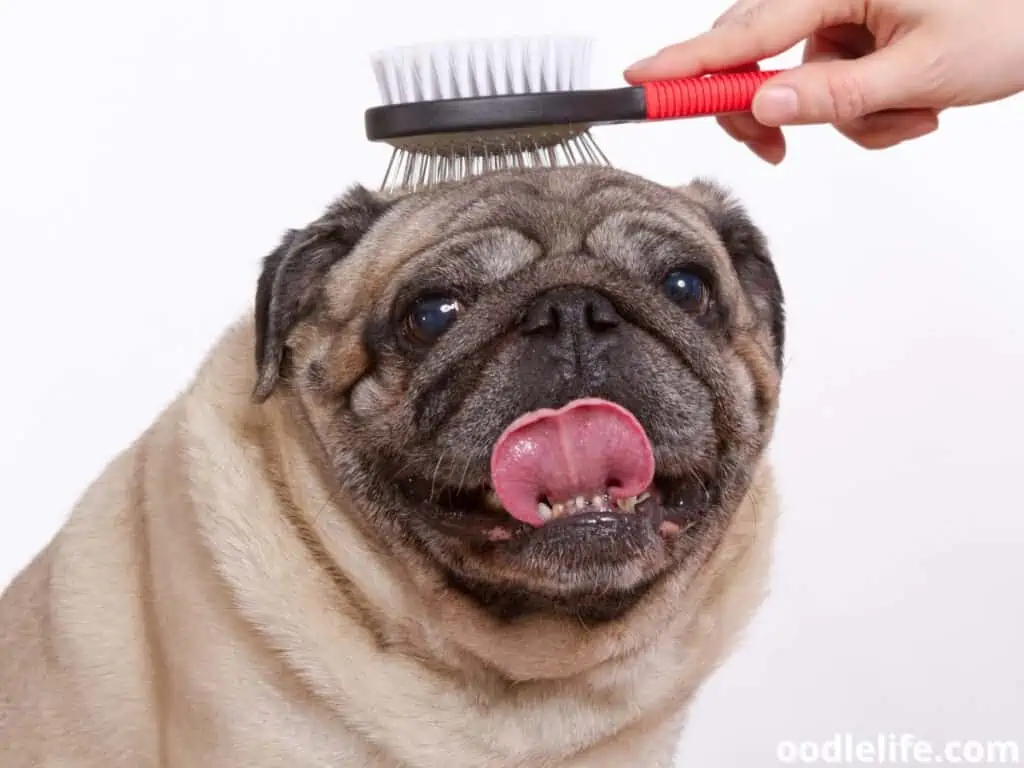
Like other dogs on this list, Pugs are considered a short skull or brachycephalic breed. With this comes your typical dental problems, including an underbite.
It’s customary for your Pug to have an underbite. It’s even listed as a defining feature.
Boston Terrier
You’re sure to recognize a Boston Terrier. With their smart black and white coat and long bat-like ears, Boston Terriers are beloved by millions. This lively breed has a lot of energy and requires frequent exercise.

This attribute sets it apart from other short-skulled breeds that often prefer a more sedentary lifestyle. These dogs weigh no more than 25 pounds yet love to run, hike, or explore the park. This feature makes them ideal for city dwellers with an active lifestyle.
While they typically come in black and white, Bostons can come in many colors. These include various combinations of brindle, seal, and white. No matter what your Boston Terrier’s coat looks like, there’s a strong likelihood it will have a slight underbite.
Boxer
While most of the breeds on this list are small dogs, larger breeds such as Boxers also suffer from underbites. Boxers can weigh up to 80 lbs and belong to the working group classification. These dogs are known to be highly intelligent and easily trainable.
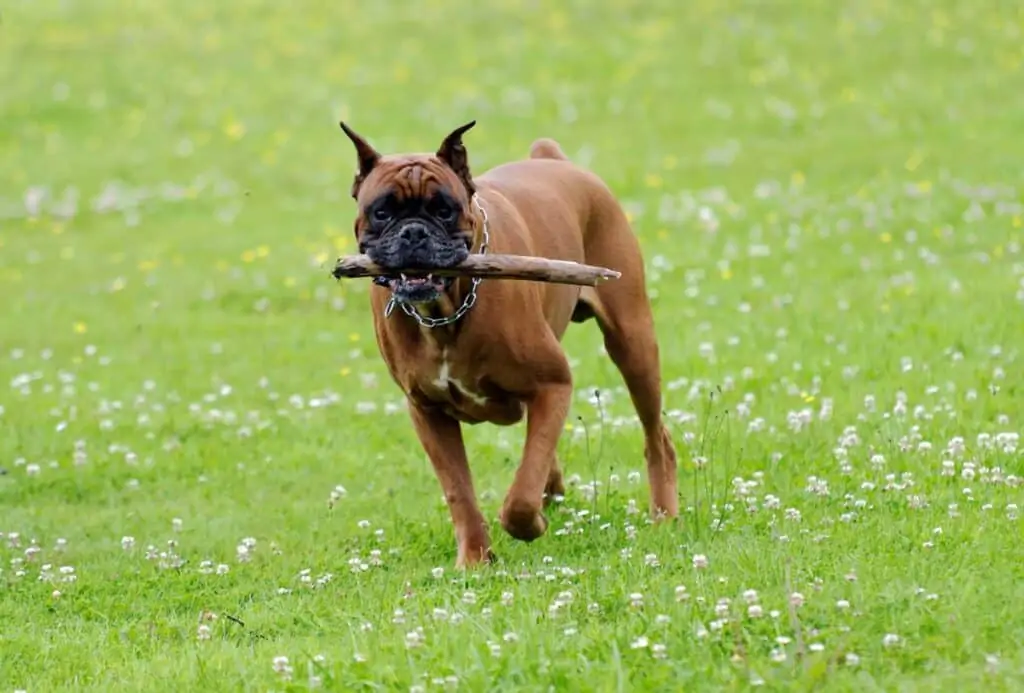
According to the AKC breed standard, Boxers have an undershot jaw. The lower jaw should jut forward from the upper and curve upward. These large, athletic, and wrinkly beasts are great companions for individuals and families alike.
Chihuahua
These tiny dogs come from Mexico. They are known for having a huge personality trapped in a tiny body! While they may not have a squished face like other breeds on this list, they are a small breed and only reach about 6 lbs on average.
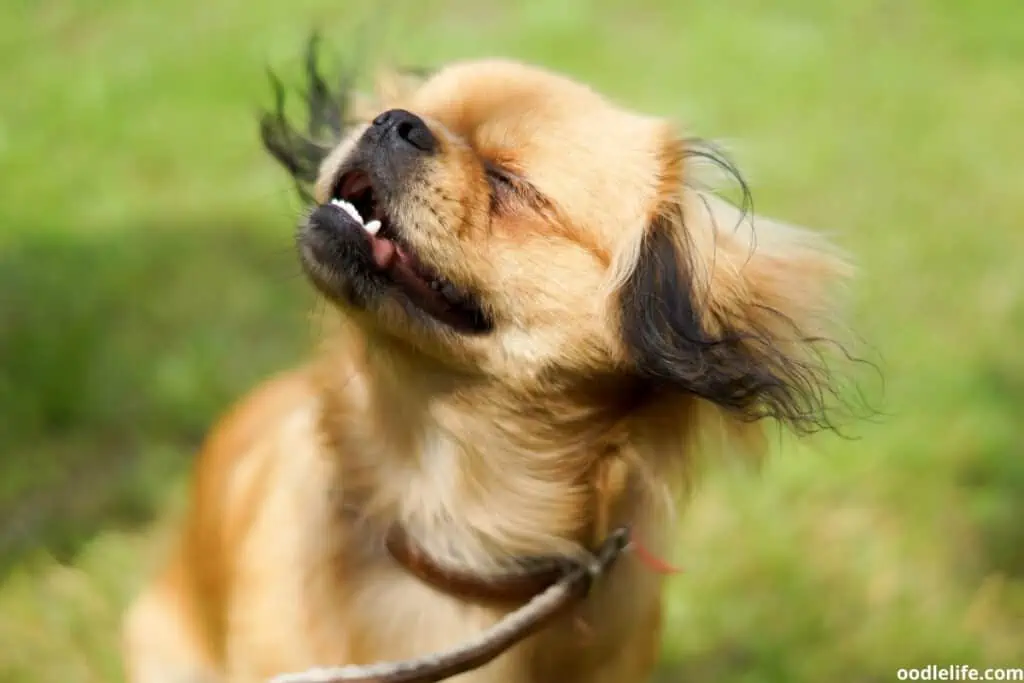
Tiny dogs are more prone to dental issues, such as underbites.
Chihuahua’s come in a variety of colors and coat types. There are short-haired and long-haired types that come in almost any color combination.
Pomeranian
These fluffy little dogs share the homes of millions of people around the world. These dogs originated in Poland and were bred to pull carts, guard livestock, and do other physical jobs. However, they were eventually bred to be smaller to be companion animals.
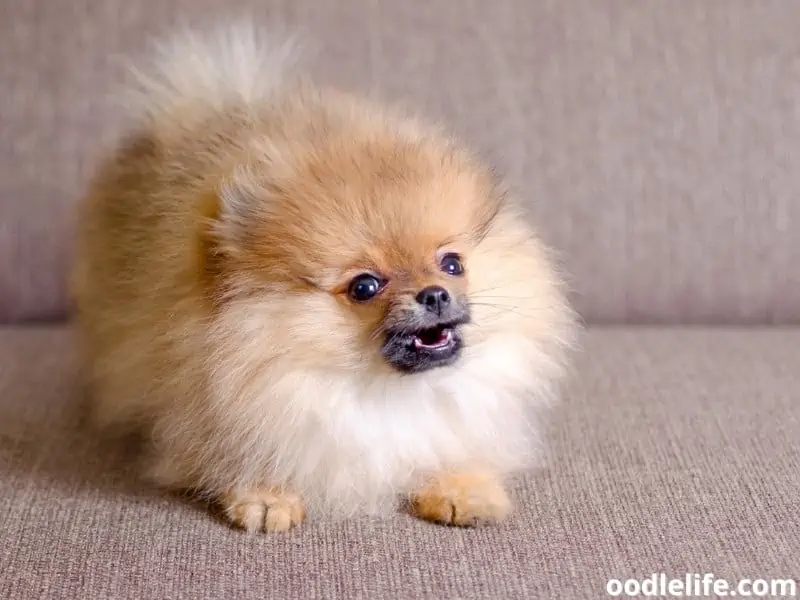
Like Chihuahuas and other toy breeds on this list, Pomeranians are known for having dental problems.
It’s not uncommon for a Pomeranian to present an underbite or crowding teeth.
Maltese
These long-haired, white, small dogs are very popular. You will typically find Maltese dogs living in urban areas. Their small size has made them ideal city dogs.
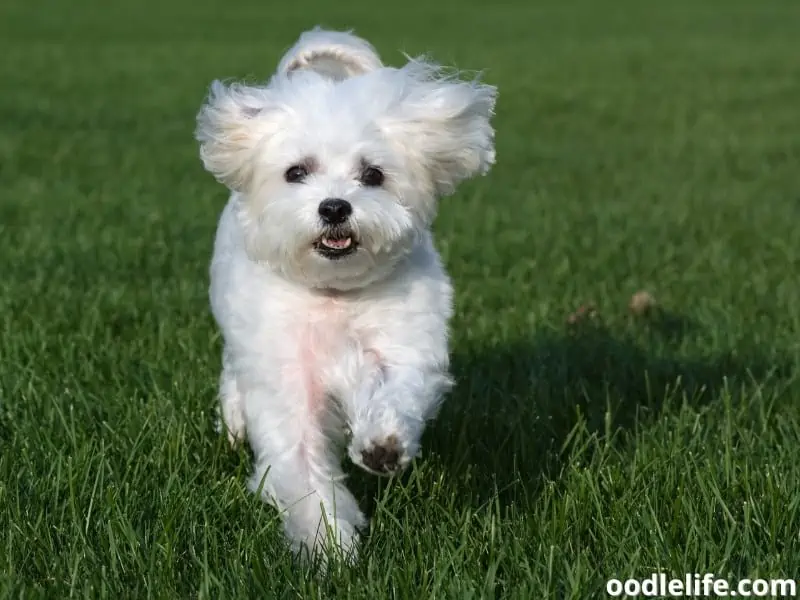
Breeders will often mix other breeds with this breed to give the desired size and hair type that families adore.
However, purebred Maltese often suffer from a variety of dental problems. It’s common for a Maltese to display an underbite, ranging from slight to severe.
King Charles Spaniel
The first Spaniel to make it on our list, King Charles Spaniels, are a very popular family dog. They rank consistently in the top 20 most popular breeds in the U.S. While most commonly sporting a red and white coat, you can also find King Charles Spaniels to be black and tan and tri-colored.

While known for being friendly and intelligent, King Charles Spaniels are prone to various health issues. The most common health issues are ear infections and dental problems. While these little dogs make fantastic pets, don’t be surprised to find yourself in the veterinarian’s office!
French Bulldog
Like the English Bulldog, French Bulldogs are short-skulled dogs with squished faces. What sets them apart from other bulldogs? They have pointed, bat-like ears that stick up.

They are sometimes mistaken for a Boston Terrier. While French Bulldogs have been rising in popularity over the past decade, it’s important to understand these dogs commonly exhibit various health problems.
It’s not uncommon for French Bulldogs to have severe underbites. It’s essential to only purchase puppies from reputable breeders that understand genetics.
Frequently Asked Questions About Dogs With Underbites
There you have it! This article listed 11 breeds of dogs that are known for having an underbite.
Do you still have questions? Not to worry. Now let’s answer some frequently asked questions you may still have about dogs with underbites.
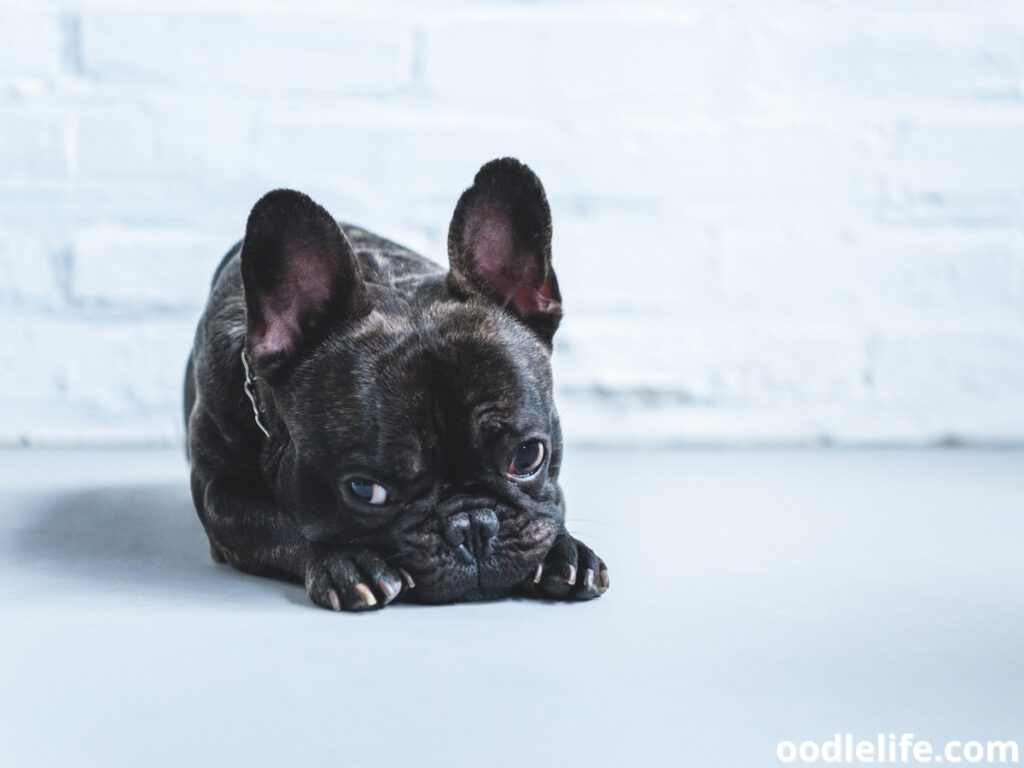
What problems can underbites cause in dogs?
Severe underbites can result in tooth wear, jaw pain, difficulty eating, or damage to the gums or palette. If your puppy begins to exhibit signs of an underbite, it’s recommended to take them to a veterinarian to see if treatment is necessary.
How do you fix a dog’s underbite?
Usually, treatment is not necessary. However, there are treatment options if you suspect your dog is experiencing discomfort or pain related to their underbite. Typically, these include extractions, physical therapies, and root canal treatments.
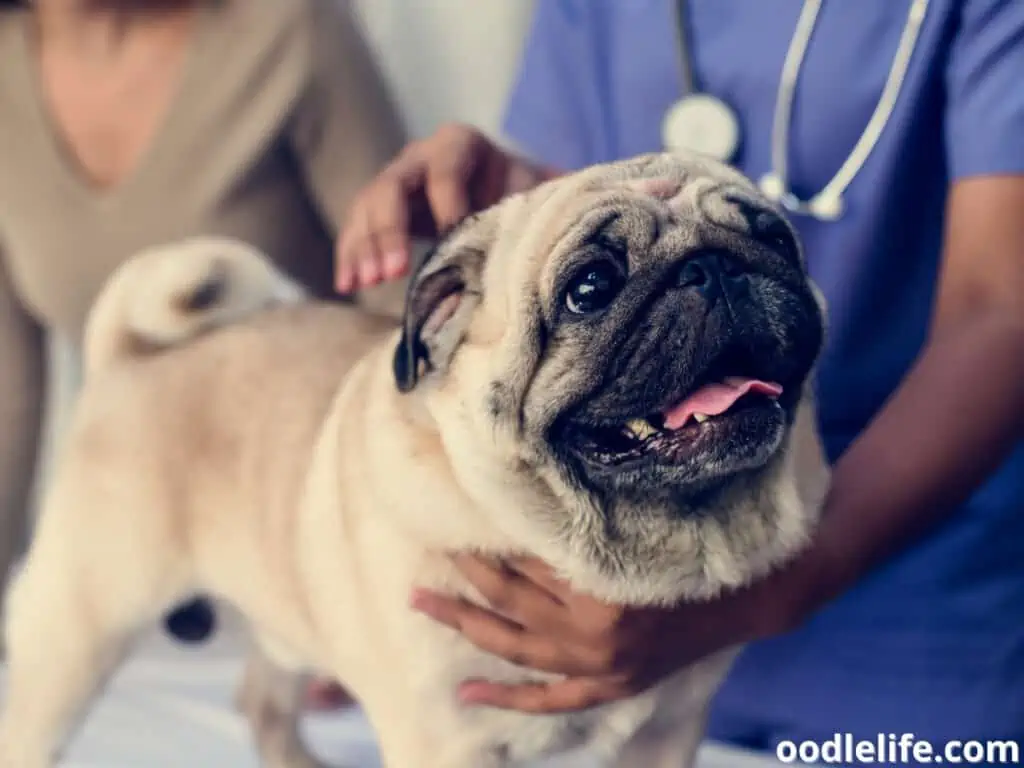
Do regular veterinarians treat a dog’s underbite?
Your local vet is a good place to start! If your dog’s underbite is severe, they will be able to connect you with specialists in your area. Veterinary dentists are specialists that receive extra training to treat oral and dental issues in your pet.
They are trained to do extractions, fill cavities, and treat diseases in the mouth.

What causes an underbite in dogs?
For most dogs, it is simply the result of genetics. This is especially true if you have a short-skull or small breed. In rarer cases, malocclusion may be the result of trauma. This trauma may have occurred in the womb or early in a dog’s life.
A severe injury such as a jaw fracture can result in the development of an underbite in dogs.
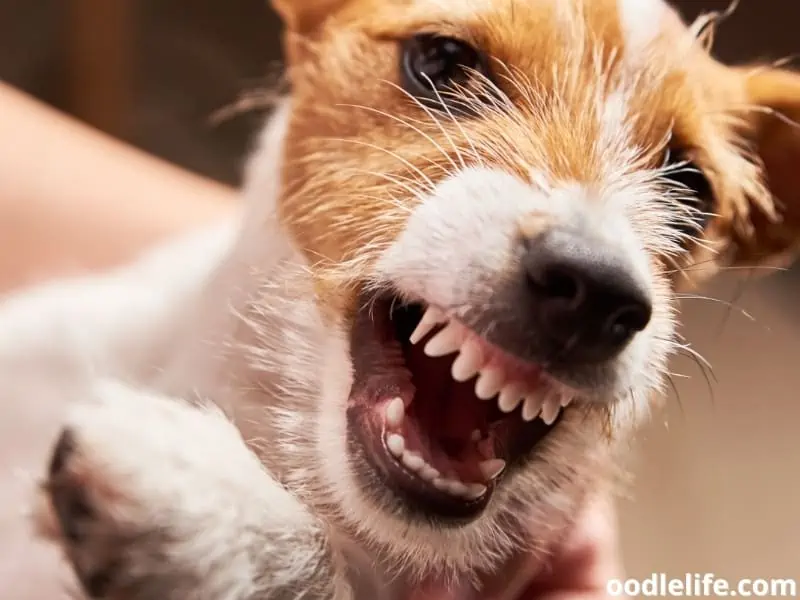
Will my puppy’s underbite correct itself?
Sometimes, a young dog’s underbite may correct itself. However, it’s most likely that if your puppy is exhibiting an underbite, it will have it throughout its life. This is especially true if you have a brachycephalic or small breed.
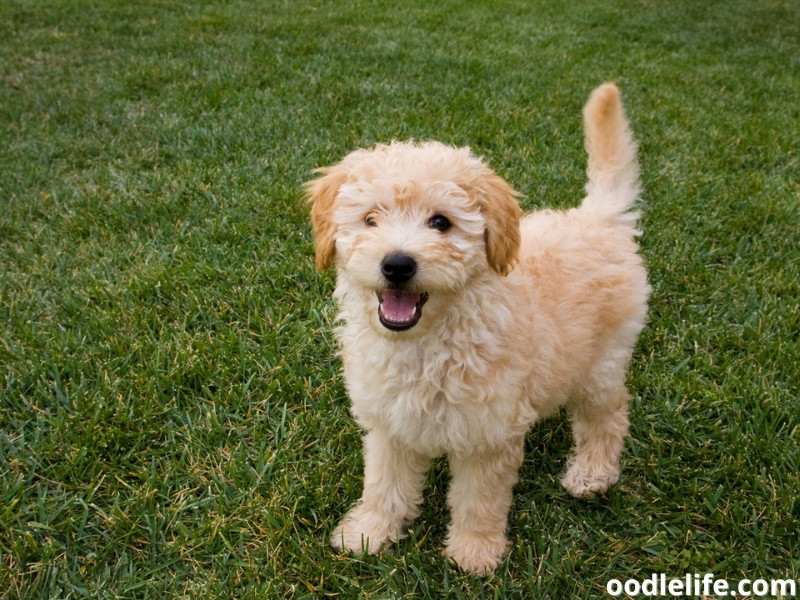
Final Thoughts
If you have a pup with an underbite or are looking at possibly getting one, it’s essential to understand the risk associated with dogs with underbites. While underbites are typically not a problem for most dogs, consult your veterinarian if you’re worried about your dog’s teeth or bite.